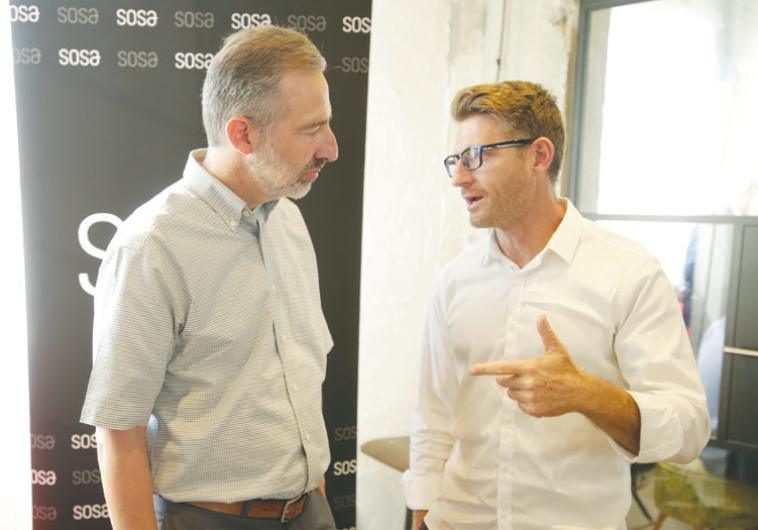Italian energy giant Enel launches innovation hub in Tel Aviv
Saul Singer: This is a new model of international business ties.
 START-UP NATION author Saul Singer (left) chats with Roee Oron of Tel Aviv’s SOSA work space yesterday.(photo credit: MICHA LUBATON)
START-UP NATION author Saul Singer (left) chats with Roee Oron of Tel Aviv’s SOSA work space yesterday.(photo credit: MICHA LUBATON)